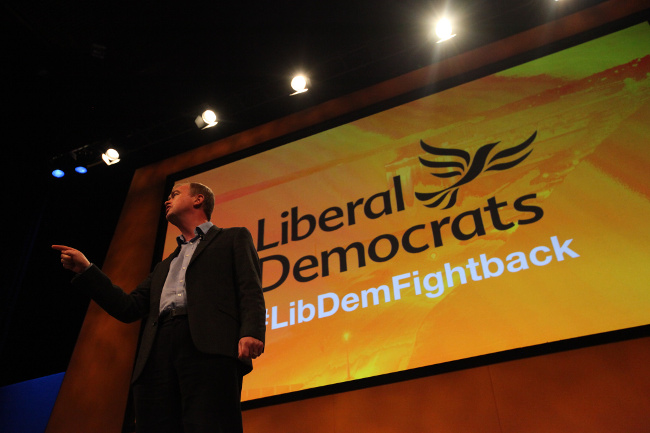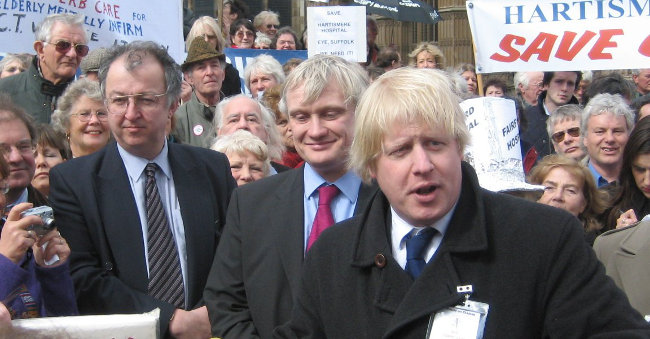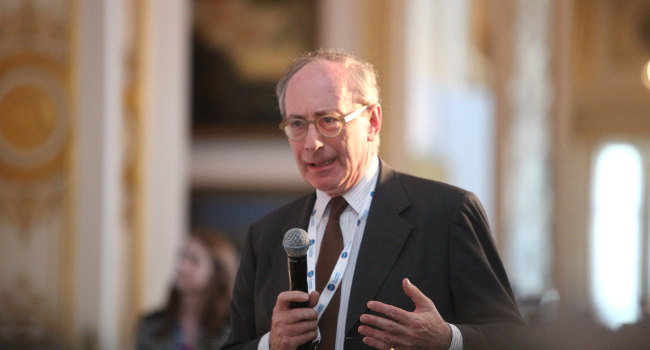Jack Straw and Malcolm Rifkind may have been cleared of breaking parliamentary lobbying rules last Thursday after being caught up in a “cash for access” sting by Channel 4’s Dispatches and the Telegraph, but this does not entirely exonerate the behaviour of the men in question.
A judgment by Parliament’s standards commissioner Kathryn Hudson reviewed the sting with full transcripts of the videos captured by Vera Productions, a film company which had set up a fake Hong Kong firm called PMR and attempted to recruit MPs to its advisory board in a bid to reveal the nature of members’ extracurricular activities six years after the expenses scandal.
Whilst the commissioner concluded there had been no breach of the rules in the conversations, the conduct of Rifkind and Straw is found wanting in a number of respects. In this piece the Right Dishonourable digs into the details of the report on Rifkind.
Free Time
One of the more infamous remarks in the Dispatches broadcast from Rifkind was that he had plenty of free time as an MP without the burden of ministerial duties. In the full transcript he actually says he is “very busy”, but he doesn’t mean that all his time is taken up being an MP:
“You know, it’s part, it becomes part of your DNA. You have to be busy, you know, because I find it stimulating, and it’s how you use your time. So you’d be surprised how much free time I have. I spend a lot of time reading, I spend a lot of time walking. Because, because I’m not a Minister or full-time working for one person I can sort out my day. So, that I, I may have three or four things that day, but in between if I want to I go for a walk.”
Clearly for a prospective employer of MPs the amount of time they could devote to a project would be of some importance. Rifkind then went on to claim that he was “self-employed”:
“I can go and have a cup of coffee. Now if you’re, if you’re employed to work nine to five or nine to eight, you know, you have to get someone’s permission to do something else, and there’s nothing wrong with that – that’s how most people live their lives. I’m self-employed. So nobody pays me a salary, I have to earn my income, but when I’m not doing something I can do what I like. And because I’m in my sixties that’s how I, how I prefer it.”
Clearly any MP claiming to be self-employed is, well, talking bollocks. And in an interview with Hudson on June 15th, Rifkind acknowledged that he did indeed receive a salary as an MP:
“You will have seen the context. It was a silly remark, because it’s obviously nonsense and such obvious nonsense I wasn’t deceiving anyone, or trying to deceive anyone. It was just a silly way of putting it. […] Talking about life, I said, either as a consultant or as a non-executive director, I get remuneration, but I don’t receive a salary. That’s my version, but it was a silly way of putting it.”
“I am not even going to try to defend it at all,” he added, having done just that. As Hudson points out, none of the above breaches the rules. But it does suggest Rifkind holds a cavalier, complacent attitude towards his job, facilitated by the fact that his seat is in Kensington and Chelsea:
“No, I mean, for example, most Members of Parliament leave London on a Thursday evening and don’t come back till Monday lunchtime. So they’re in another part of the country. For me that is quiet time [laughs]. It’s easy.”
Business Meeting
Parliamentary rules forbid MPs from using their parliamentary offices, or indeed Parliament’s facilities, to conduct business. As such the suggestion in Dispatches from Rifkind that he was willing to show the phoney PMR representatives around Parliament following the first two meetings in offices in Mayfair was cause for some concern.
One might have thought arranging to meet up with someone to discuss potential employment would qualify as a “business meeting” in most people’s vocabulary. Yet challenged on this point in the interview with Hudson, Rifkind argued otherwise:
“From my perspective, at that stage, I do not even know whether I want to have a relationship with them at all at that stage, so I do not see it as a business meeting, but it obviously is a meeting which, if it leads to other things, will end up as a business relationship.”
This is plain sophistry.
Hudson goes on in her report to quote a former parliamentary standards commissioner on the exact use of MPs’ offices when it comes to business meetings:
“It may also be most convenient for a Member to make use of parliamentary facilities in meeting others not strictly for the purpose of parliamentary business. This is because it keeps the Member near at hand so that they can continue to conduct parliamentary business if necessary. But the use of House facilities simply as a way of boosting a Member’s employment prospects would, in my judgement, be a misuse of those facilities.”
It is significant then that Rifkind invited the undercover reporters to his office in Parliament, an offer he denied took place before being proved wrong by the full transcripts:
“Well, I agreed to meet them in my office. [….] I certainly – I do not for a moment deny – it would be incorrect to imply that this did not happen. Of course I said it, but that was – she had said her – I was doing what I would do with anyone. If people tell me that they have never been to Parliament and they would love to see around it, that is what one does. I think every MP does that.”
Whether Rifkind regularly showed plebs around Westminster when a “remunerated” board position was not in the offing was not examined by Hudson. But she did conclude that if the offer was taken up in this instance it may well have been a problem:
“Had Sir Malcolm’s offer been taken up, particularly after the second meeting when it was clear that PMR were likely to have further questions relating to the possibility of employing him, Sir Malcolm might then have been in breach of the rules by using parliamentary resources for the purpose of boosting his employment prospects.”
Writing to ministers
Among other questions about what Rifkind could do in his capacity as advisor, the two undercover reporters wanted to know what privileged information the MP might be able to get access to. To his credit, Rifkind rebuffed them on this:
“No, no, no we have quite… they have to be very careful. You cannot give privileged information to one private citizen or a company that is not available to others. Because that, why should they? There is no benefit from their point of view, and they will simply be severely criticised. But there is an awful lot of information which is not secret which if you ask the right questions you’ll get the answer.”
From Parliament’s point of view the problem was that Rifkind did say, hypothetically, that he could write to the relevant person to gain access to public information without disclosing who he was asking the question on behalf of. As Hudson says:
“If a Member corresponds with someone about a matter in which they have a relevant financial interest, they must obey the rules on declaration and observe the prohibition on lobbying for reward or consideration. Those specific rules should, of course, be read in the context of the general principles of conduct, particularly that of openness.”
Rifkind’s defence is that the remark was made “off the cuff”, though one notes that it is exactly the sort of thing a business could want to hear if they wished to gain an information advantage over their rivals. Even so, Hudson finds “no evidence” that Rifkind was “engaged in lobbying or was prepared to do so.”
At another point in the PMR meeting Rifkind claimed he could gain access to any foreign ambassador “in a way that is useful”, because of his time as foreign secretary. After reviewing the full transcript of the conversation, Rifkind said:
“It was agreed by me and those I was speaking to that the purpose of meeting with an ambassador would be limited to ascertaining whether their government would have any problem with a proposal for investment in their country by a foreign company.”
He goes on to label the suggestion in the Dispatches broadcast “cut and paste” journalism:
“The narrator says ‘We discussed with Sir Malcolm what he thought he could bring to a role on the board.’ They then use again my remark on knowing foreign Ambassadors in London with the clear inference that this was what I thought I could bring to a role on their board. The transcript makes clear that that is a dishonest distortion of what was, actually, said.”
But it is hard to believe that in the context of a meeting about employment Rifkind’s comments on access to foreign officials is not intended as part of his employment pitch, even if there is no suggestion of willingness to break parliamentary rules. As he himself said:
“One of the advantages I have—is very lucky—is that because of the jobs I’ve done, if I go to a country and I want to see someone, I can usually get access.”
—
A full copy of the evidence on Rifkind can be found on Parliament’s website.
Image Credit – Malcolm Rifkind, London Conference June 2015 by Chatham House




